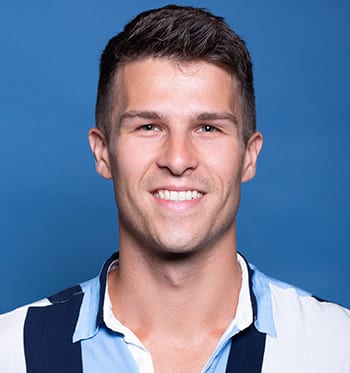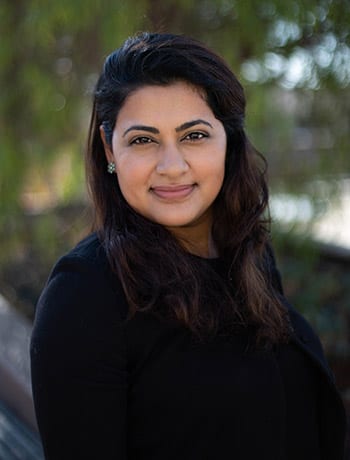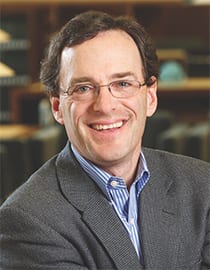
By Gwyneth K. Shaw
Where there’s money, scams are sure to follow—and the coronavirus pandemic is no exception. From price-gouging on essentials to outright theft, students in Berkeley Law’s Consumer Advocacy and Protection Society (CAPS) have been uncovering fraud and swindles all over the country, and fighting back.
Working with the school’s Berkeley Center for Consumer Law & Economic Justice, CAPS students have rooted out more than 80 instances of shady dealings. They range from sketchy COVID-19 cures to efforts to snatch the aid checks sent out by the government, says CAPS Co-Chair Reed Shaw ’22.

“In these unprecedented times, we have been learning on the job how best to track down scams,” Shaw says. “Mostly, this has meant searching around the internet, asking friends and family to forward along suspicious emails and content, and tracking down common threads from previous enforcement actions.”
Shaw and fellow co-chair Nabila Abdallah ’22 took their posts shortly before in-person classes ended in March, scattering students around the country. Ted Mermin ’96, who leads the Berkeley Center for Consumer Law & Economic Justice and was in touch with enforcement agencies such as the California Attorney General’s Office and the Federal Trade Commission, suggested the students look into coronavirus-related scams.
“Amid the welter of false advertisements for COVID-19 cures and bogus promises of ‘help’ obtaining stimulus payments, it occurred to me that there was work to be done protecting already vulnerable people from further harm,” Mermin says. “Who would be better to do that work than Berkeley Law’s remarkably able and committed consumer law students?”
The Scamhunters Project was born.
Early red flags
Shaw and Abdallah quickly enlisted other CAPS members and started digging. They found problems just as fast, sleuthing online, asking friends and family to forward fishy emails and ads, and sifting through the enforcement trails from earlier consumer scams for new leads. Once a week, they held Zoom happy hours to trade tips and talk about how to report their findings.

More than two dozen students are involved, Shaw says, and there’s hope of expanding the effort beyond Berkeley to other law schools this summer and fall.
“We’ve identified a lot of dishonest advertising around COVID-19 treatments and cures like colloidal silver, herbal regimens, and ozone treatments,” he says. “We’ve also been searching for scams related to economic impact check payments to individuals as part of the pandemic response legislation.”
The students’ work has caught the attention of numerous regulators—including the Federal Trade Commission, Consumer Financial Protection Bureau, Federal Communications Commission, the office of California Attorney General Xavier Becerra, and city and county attorneys in California—and their leads have been well-received.
They’re getting results, too: The FTC has sent out warning letters to a number of targets they identified, and while Becerra’s office doesn’t make its own letters public, officials there have signaled that the students’ leads have aided enforcement actions, Shaw says.
An expanding network
Now that the academic year is over, Shaw and Abdallah want to keep going. They and Mermin hope to activate student groups that are part of the Consumer Law Advocates, Students, and Scholars (CLASS) Network, a partnership between the consumer law center and the National Association of Consumer Advocates.

“This project is not only giving students practical experience putting together investigative materials,” Mermin says. “It’s also giving them the opportunity to work with like-minded students from around the country—perhaps their future colleagues.”
The center has been busy with other COVID-19-related advocacy, crafting a series of consumer protection guides for those impacted by the financial toll of the virus-related shutdowns, covering topics from tenants’ rights to auto insurance.
Eliza Duggan ’16, who recently joined the center as a research fellow, has been writing the guides and helping the students reach regulators when they find possible scams and fraud.
“I started working at the center right in the middle of the shelter-in-place order, and I am really excited about the work we’ve been doing,” Duggan says. “It’s been fun to dive in on really timely projects.”
For Shaw, Abdallah, and the other students working on this effort, it’s been a welcome way to make a positive impact amid a stretch of law school that’s very different from what they expected.
“Even in the most hectic—hopefully—law school semester of our careers, these student volunteers have the passion and willingness to put their talents towards pursuing justice for consumers,” Shaw says.